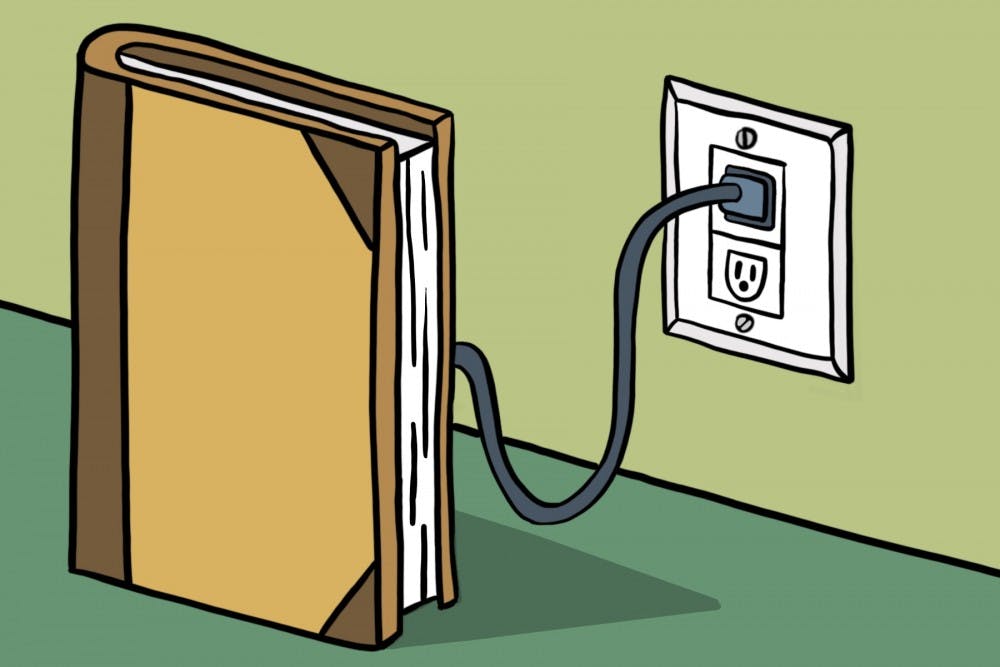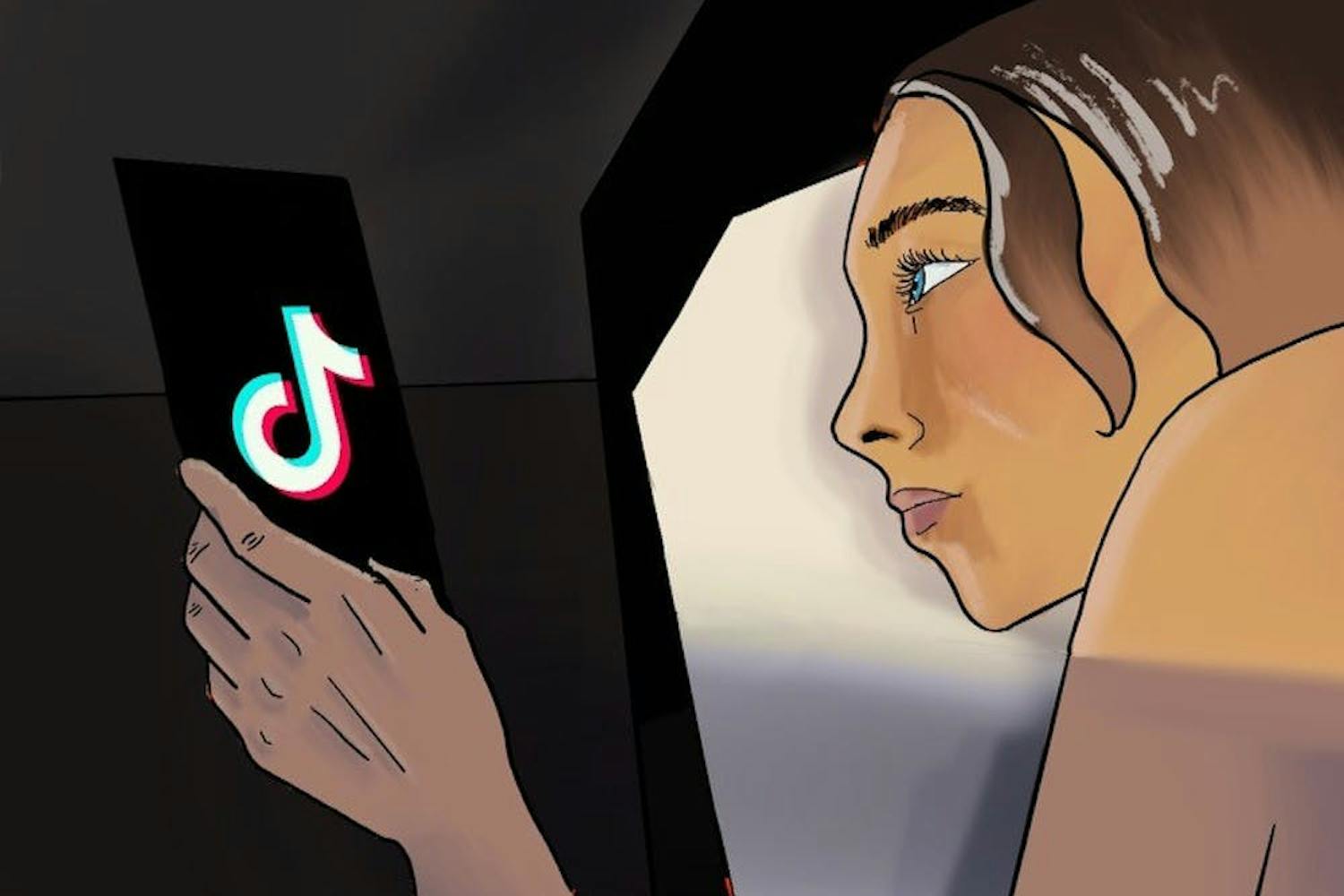A study in 2010 discovered that 92 percent of college students favored paper books over e-readers.
However, while students continue to prefer print books, it is inevitable that e-books will rightfully surpass the popularity of paper due to their accessibility. Students shouldn't be so resistant to such a change.
At ASU, the nine libraries offer students access to about five million books as well as 300,000 e-books and 78,000 e-journals from an online database.
As the shift is being made towards the more versatile, digital reading methods from print, many traditionalists are resistant to the change and maintain a strong preference for hard copies of books.
One reason for this is that studies show print readers absorb more of the material they are reading allowing a more immersive experience than those who choose the electronic alternative.
In 2016, six percent of Americans read their literature solely from e-readers, while 38 percent read solely from print books.
The first e-reader appeared in 1998, but they didn’t gain popularity until 2012 when more authors began to convert their books to an electronic format.
Amazon and Barnes & Noble began to revolutionize e-readers during this time by making e-readers sleeker, more compatible for travel and accessible with online content.
Part of the reason for book lovers are resistant to e-books is a desire to have complete ownership of the book.
“If you have an e-reader, you don’t own the book – if you buy a print book, you own the book,” Alexandra Humphreys, an associate librarian at the Downtown Phoenix Campus's library, said. “When you buy an electronic book, you don’t own it still because one day Amazon may take away the book, so they want to be sure they have that.”
Nevertheless, these are problems that will likely be resolved soon, especially as society is moving towards being dependent on technology.
Although people may want to cling to their paper book copies, it is simply easier and more convenient to store an entire library in one compact location. Therefore, the rise of e-books is unstoppable as we continue to advance into the digital age.
“We are a mobile society. I moved several times and now I have very few books because each time I moved, I carried fewer and fewer books," Humphreys said. "It’s easier to have everything in one (reading device).”
E-readers are more practical for college students, a demographic that is constantly on the move.
By 2020, California law will require that all college textbooks be available online in an electronic format.
It would be unprogressive for students to not adapt to the convenience of e-books, and holding on to print would only be a personal setback.
Print will continue to exist as e-books evolve, but eventually students will rightfully make the switch.
Reach the columnist at hncumber@asu.edu or follow @hncumber on Twitter.
Editor’s note: The opinions presented in this column are the author’s and do not imply any endorsement from The State Press or its editors. Want to join the conversation?
Send an email to opiniondesk.statepress@gmail.com. Keep letters under 500 words and be sure to include your university affiliation. Anonymity will not be granted. Like The State Press on Facebook and follow @statepress on Twitter.




